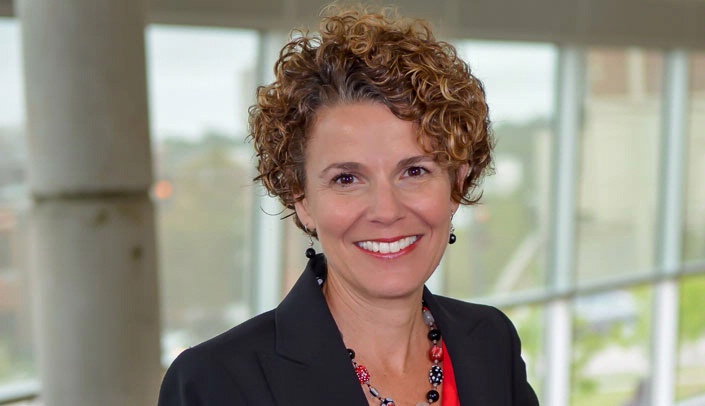Of all the dental schools in the United States, the UNMC College of Dentistry ranks No. 1 in graduates who return to rural communities to practice, a new report indicates.
Thirty-three percent of the UNMC College of Dentistry’s graduates end up practicing in rural areas, according to an article published in the October issue of the Journal of the American Dental Association.
Statewide impact
Other examples of the UNMC College of Dentistry’s impact on the state include:
- Fourth-year dental students spend several weeks in extramural rotations working alongside UNMC graduates and faculty in 24 different counties across Nebraska.
- Since 2001 the school has treated more than 5,600 children and provided services valued at more than $2.8 million to low income and underserved children in the state.
- Pediatric dental residents spend six weeks every year in Columbus, Macy, Hastings and Gering providing dental care for approximately 1,000 pediatric patients.
- For years, faculty, staff and students have participated in the Nebraska Mission of Mercy, an annual charitable dental clinic that provides care to the needy in the state. Their support has helped provide dental services to more than 10,000 Nebraskans.
- Students and faculty volunteer their time weekly and provide dental care at the People’s City Mission dental clinic which caters to the needy and homeless community in Lincoln.
- Dental hygiene students travel to multiple nursing homes to provide care for the elderly.
“As a state-supported college, one of our primary missions is to provide dental professionals for Nebraska,” said Janet Guthmiller, D.D.S., Ph.D., dean of the UNMC College of Dentistry. “We are aware of the need for dentists in rural Nebraska and the partnerships with the state are pivotal in attracting rural students and retaining our graduates in rural areas.
Through UNMC’s Rural Health Opportunities Program (RHOP), Dr. Guthmiller said 83 percent of dental graduates (38 of 46 students) participating in the pipeline program between 1997 and 2012 have returned to work in rural communities.
Along with the RHOP program, the UNMC College of Dentistry also works closely with the Nebraska Office of Rural Health, said Marlene Janssen, health program manager providing support to the Rural Health Advisory Commission in the Nebraska Department of Health and Human Services.
Janssen said two state-funded rural incentive programs have contributed to the College of Dentistry’s success in placing a higher percentage of graduates in rural Nebraska:
- The Nebraska Loan Repayment Program, funded in 1994 with dentists added in 1998; and
- The Nebraska Rural Health Student Loan Program that added dental students in 2000 by the Nebraska Legislature.
“For more than 100 years the UNMC College of Dentistry has provided exceptional dental education and service to Nebraskans and beyond through premier educational programs, innovative research and clinical care,” said UNMC Chancellor Jeffrey P. Gold, M.D.
Dr. Gold noted that 67 percent of all the dentists practicing in the state are graduates of the UNMC College of Dentistry and 83 percent of rural dentists are graduates.
“In the past five years, our graduates have chosen to practice in 29 different counties in the state,” Dr. Guthmiller said. “Today 47 percent of the dental students currently attending the College of Dentistry are from rural communities.
“While our students are in school, they also provide a dental safety net for underserved and low income patients providing more than $6 million in free and reduced care annually to citizens across the state.”

Wow – great work, Dean Guthmiller, and the College of Dentistry! Dentistry is such an important element of our rural workforce and congratulations on your leadership.
As someone who grew up in rural Nebraska, I salute the Dentistry Program for their outreach to rural communities.
Kim Bainbridge